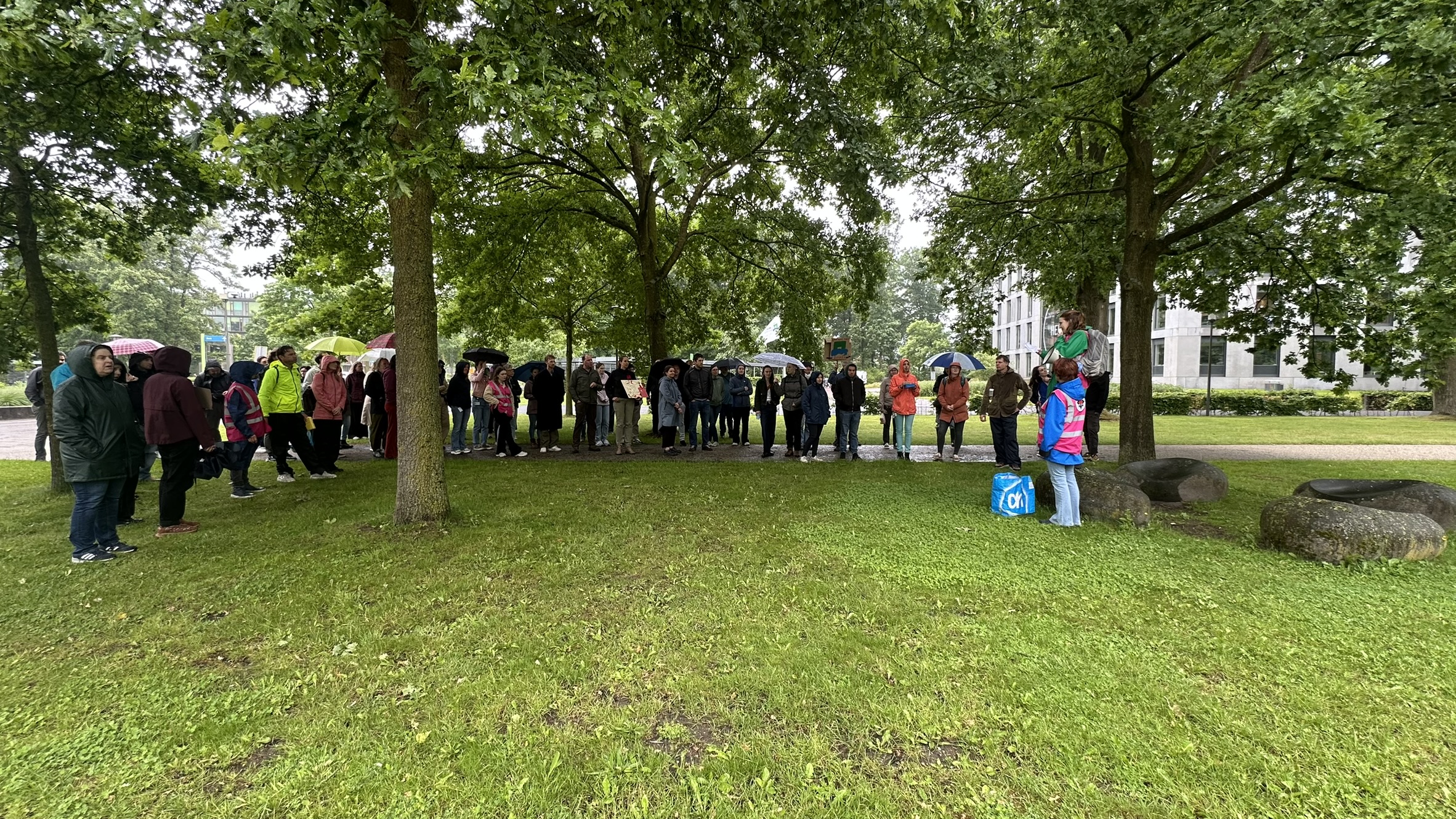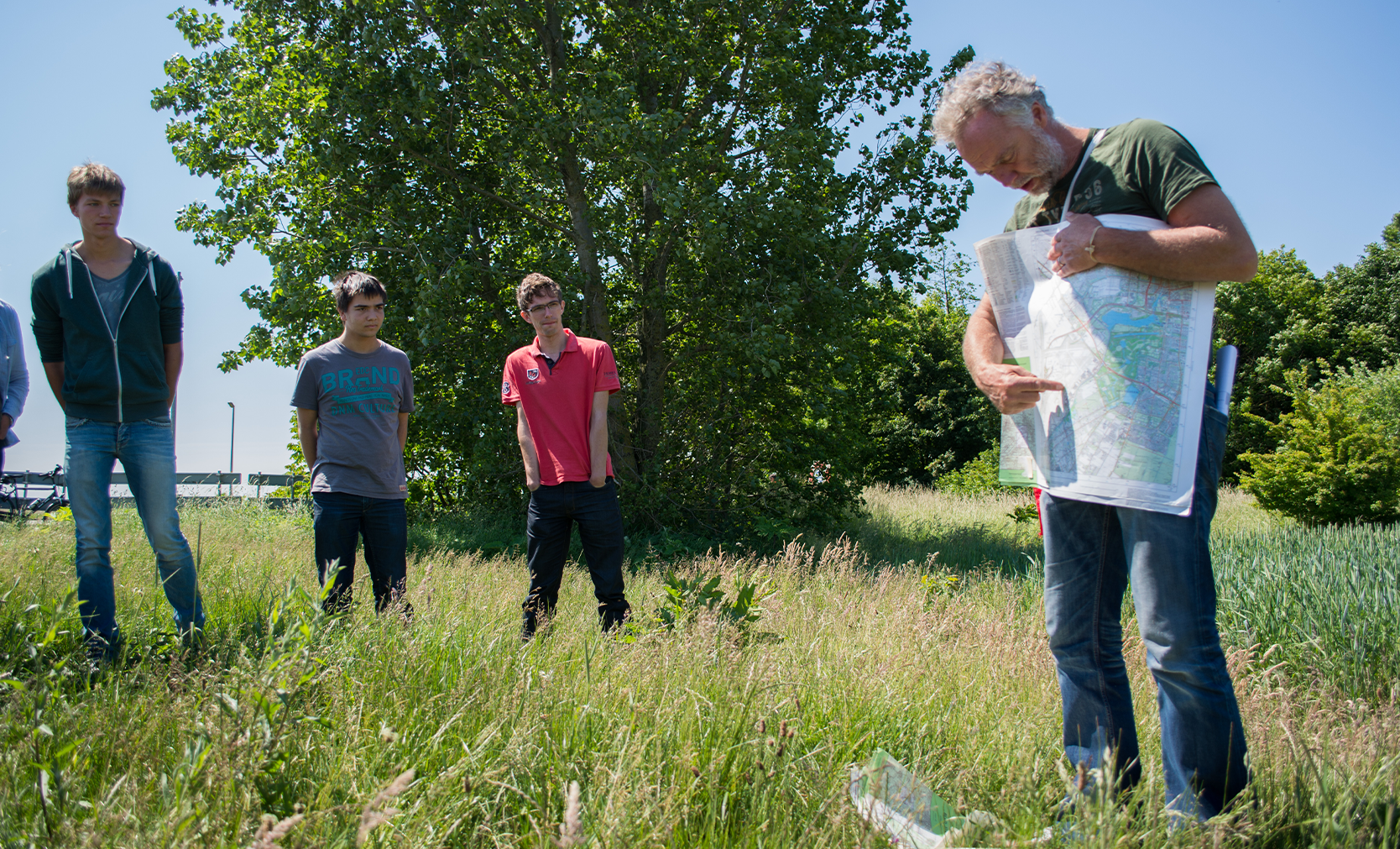The next few years will see a major revamp of the Bachelor degrees offered by Wageningen if the Executive Board has its way. The revamp is necessary in a rapidly changing world with increasing competition and falling student numbers, says the Dean of Education, Dick de Ridder. ‘We’ll be asking all the degree programmes to help us decide how to reduce the number of degrees and make them broader.’
The plans follow an advisory report produced by the Portfolio Analysis working group. The group looked at how Wageningen’s Bachelor’s programmes could continue to thrive in times of falling student numbers, increasing competition from other universities and greater pressure on education funding. The working group concluded the issues were too major to be tackled simply by making a few modifications to individual degrees. One of the most striking recommendations is to reduce the current number of 21 degree programmes — which can overlap quite a bit and therefore compete for the same students — to between 12 and 16 broader degrees, within which students can specialize in a range of areas. The group also recommends terminating two degree programmes: Tourism, and Communication & Life Sciences.
The Executive Board agrees with the report’s conclusions, says De Ridder. ‘That means a process will be initiated in which the plans proposed in the advisory report will be worked out in detail. In other words, we’ll be looking at how to merge BSc programmes or reconfigure them.’
Broader and stronger
‘Many Bachelor’s programmes are seeing falling numbers,’ says De Ridder, ‘and that means the future of some programmes is in danger.’ The advisory report concludes that the current level of government funding means a degree programme needs to attract at least 63 students to break even. Last academic year, the average was 67 students per degree, but the intake for some degrees has been substantially lower for quite some time. To put this in perspective, the average intake nationwide for a Bachelor’s degree is about 140 students. ‘We want to shift to having fewer degree programmes that are also stronger, broader and future-proof,’ says De Ridder. ‘We’re aiming for an intake of at least 80 students per degree per year.’
Many Bachelor’s programmes are seeing falling numbers and that means the future of some programmes is in danger
Dick de Ridder, Dean of Education
The working group does not see a future for the degrees in Tourism and in Communication & Life Sciences, both of which consistently had fewer than 25 new students starting in recent years. However, the expertise in these chair groups could be incorporated into other existing programmes or new degrees. De Ridder: ‘These are painful decisions for everyone involved in these programmes. As regards Tourism, we will be talking to Breda University of Applied Sciences to see whether they can continue without us. The proposed decision to end the Communication & Life Sciences degree programme is currently being considered by the consultative bodies. Depending on what they recommend, we could stop taking on new students from 1 September 2027.’
The degree programme will continue for at least four years after that, says De Ridder. ‘We will make sure that students can finish their degree as they would normally. That will also give us enough time to transfer parts of these programmes to other new or existing programmes. After all, communication is a key aspect in many of our domains.’
We want to reduce the number of degrees but this portfolio analysis is not about reducing the amount of education on offer
Should people be worried about their jobs? ‘We want to reduce the number of degrees but this portfolio analysis was categorically not about reducing the amount of education on offer,’ stresses De Ridder. ‘At the same time, falling student numbers and possible cuts may mean less money for chair groups, and eventually that could have an impact on the number of jobs. At this stage, it’s difficult to say whether that can be resolved through natural attrition. We’ll need to investigate that over the next few years.’
Adaptability
According to the advisory report, there is currently often some overlap between degree programmes, with a lot of shared courses. ‘This interlinking makes it harder to implement the major structural innovations that are needed to adapt degree programmes in line with scientific, technological and socal developments’, says the report. If there are fewer degrees, those degree programmes will become more adaptable. This would also mean different WUR degree programmes are no longer competing for the same students.
The advisory report sketches the broad outline of how the degrees on offer could be revamped over the coming years, explains De Ridder. ‘All the degrees will be divided into five subsets, as we call them: Biological Sciences; Food Nutrition & Health; Earth & Environmental Sciences; Technology & Engineering; and Sustainable Transitions for Society & Business. Each degree will fit into one or more subsets. For each subset, we’ll discuss with the degree programmes affected how we can arrive at broader programmes. A steering group will be set up to guide this process.’
Not easy
The plans to revamp the BSc degrees do not just apply to smaller programmes struggling with low numbers, stresses De Ridder. ‘We’ll be asking all the degree programmes to help us decide how to reduce the number of degrees and make them broader.’ He sees the plans as ‘an opportunity for the university to go back to the fundamentals and for us to ask ourselves what we are good at and what kind of people we want to educate our students to become.’ It will not be an easy process, he warns. ‘But it’s necessary.’
‘An analysis was also carried out of the Master’s degrees, but the overall picture showed that the Bachelor’s programmes needed the most urgent attention,’ says De Ridder. ‘That is why we’ve started with them. The idea is that we will then review the Master’s portfolio, but nothing is being done on that for now.’
The internal advisory report is available to read here via the intranet.

 Information market during an open day. There might be fewer degrees to choose from in a few years’ time. Photo Marte Hofsteenge
Information market during an open day. There might be fewer degrees to choose from in a few years’ time. Photo Marte Hofsteenge 

